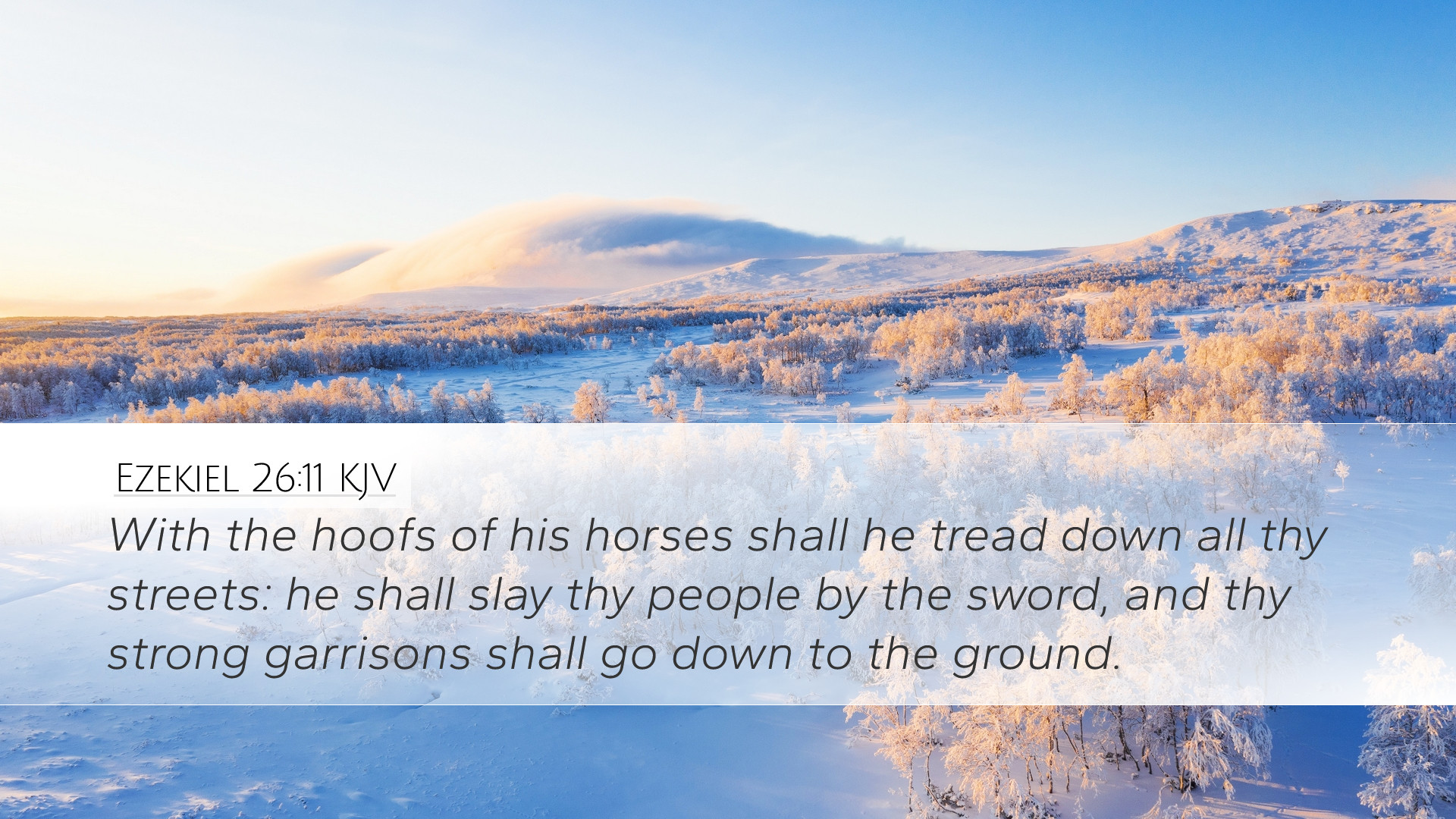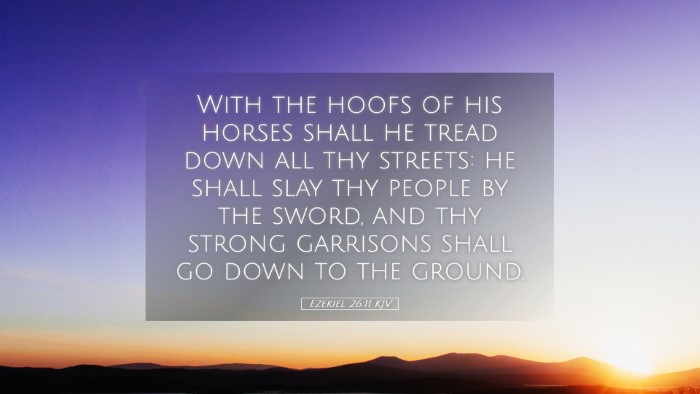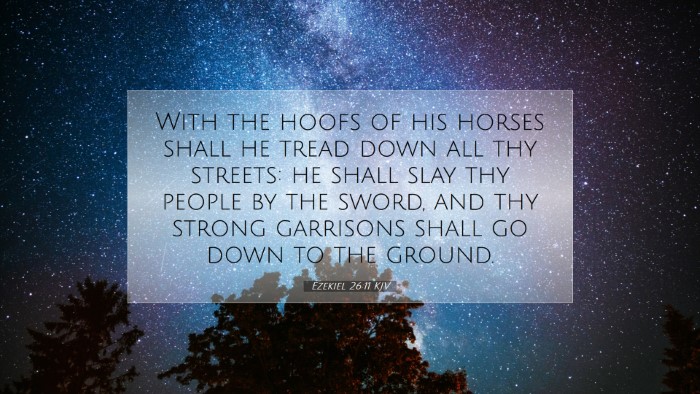Ezekiel 26:11 Commentary
"With the hooves of his horses shall he tread down all thy streets; he shall slay thy people by the sword, and the strong garrison shall go down to the ground."
Historical Context
Ezekiel 26:11 is situated within a larger prophecy against the city of Tyre, symbolizing the impending judgment against prideful nations that stand against the people of God. Tyre was known for its wealth and fortifications, representing the governments and powers that put their trust in material strength rather than in the God of Israel.
Matthew Henry emphasizes that Tyre, due to its pride and arrogance in its position as a flourishing commercial hub, is met with divine judgment. This verse announces the destruction that would come at the hands of Nebuchadnezzar, illustrating the principle that no power can resist the will of God.
Divine Judgment and Human Agency
Albert Barnes suggests that this passage illustrates both God's sovereignty and the use of human instruments to fulfill divine purposes. The “hooves of his horses” and the “sword” are metaphors for the military might of Nebuchadnezzar’s forces, which God ordains for the punishment of Tyre’s iniquities.
Military Imagery
The vivid imagery found in this verse is crucial in understanding the gravity of the forthcoming siege. Clarke notes that the thoroughness with which Nebuchadnezzar would trample down the streets represents the total devastation awaiting Tyre. This military imagery not only served to warn the citizens of Tyre but also demonstrated to Israel that God can and will execute judgment through worldly powers.
- Hooves of Horses: Symbolizing unforeseen might and violence.
- Sword: The instrument of slaughter, signifying death and destruction.
Theological Reflections
For pastors and theologians, this verse invites reflection on the omnipotence of God in orchestrating events through human history. The mention of "the strong garrison" falling can be viewed as a reminder that even the strongest defenses are futile against divine judgment.
Barnes points out that this should inspire both dread and comfort; dread for those who oppose God's will and comfort for the faithful who trust in His just governance. The prophecy demonstrates that arrogance will inevitably lead to downfall.
Contemporary Application
Applying this verse today involves recognizing the temptations of societal pride and self-reliance. Just as Tyre took pride in its wealth and fortification, modern societies often put their confidence in technology, military might, or economic strength.
This portion of Ezekiel serves as a sobering reminder to communities and nations: When we forsake righteousness and uphold vanity, we invite judgment. The faithful are called to remain steadfast and humble, acknowledging God’s sovereignty in all things.
Concluding Thoughts
Ezekiel 26:11 stands as a profound illustration of God's judgment against pride and the ultimate futility of human strength when pitted against divine decree. By studying this verse within the larger framework of Ezekiel's prophecies, believers are reminded of God's sovereign control over the affairs of nations, the importance of humility, and the need for steadfast faith amid trials.
As pastors and scholars delve into this text, they are encouraged to draw both historical and contemporary lessons, applying the rich insights of the past to guide present and future generations.


